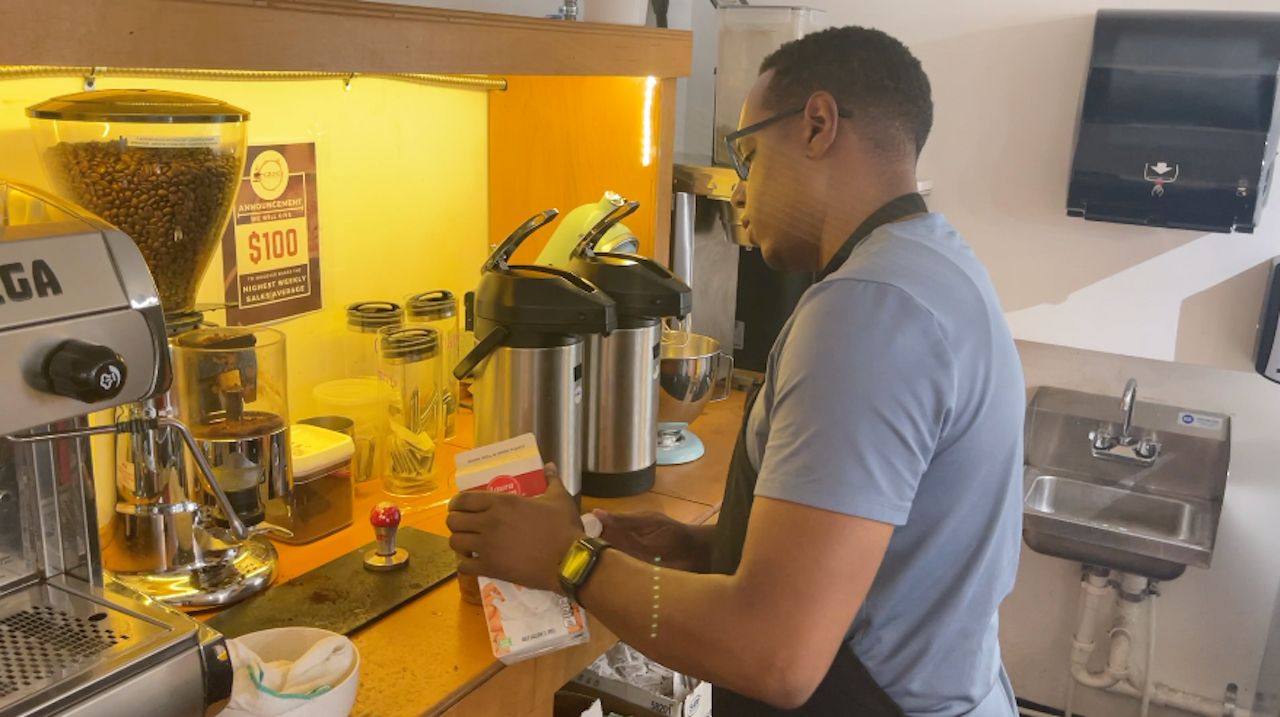ASHEVILLE, N.C. — Across the nation, recent data shows there’s a disparity when it comes to the success rate of Black-owned businesses versus white-owned businesses.
What You Need to Know
J. Hackett is a new business owner
Within his first six months of business, he started Black Wall Street
Black Wall Street supports Black-owned businesses
Black Wall Street has over 50 Black-owned businesses on board
A CNBC report said eight in 10 Black-owned businesses fail within the first 18 months. In North Carolina, Black-owned businesses during the pandemic closed down at a much higher rate than others.
Black entrepreneurs, J. Hackett and Bruce Waller are trying to change that.
They recently went into business for the first time in 2020, opening Asheville’s first Black-owned coffee shop, Grind AVL. But it’s something Hackett doesn’t want to take credit for.
“We say it with the awareness that our forefathers never got the true recognition for what they've done,” Hackett said. “We're happy to be the first Black-owned coffee shop, but we know that so many people came before us.”

Hackett said there was likely another coffee shop came before them, but the Black owner probably didn’t get credit for it.
Hackett grew up poor in Philadelphia, and he realized the fastest way for any marginalized person to establish financial independence and independent wealth was through entrepreneurship. That was the driving force behind opening up Grind AVL. It’s more than just a coffee shop, Hackett said.
Though they claim they're not coffee experts, Hackett wanted to bring people together with the business. His baristas are called “grinders” because Hackett says it’s all about the grind to become successful.
“One of the disparities studies showed that on average white businesses in Asheville make about $400,000 a year, and Black businesses only make $40,000,” Hackett said.
He wants to fix statistics like that and hopes Asheville becomes a place known for flourishing Black businesses.
To do that, he started Black Wall Street in 2021. It’s a cohort model helping support Black businesses in all aspects – with financial advising, hosting online meetings weekly and a market place every weekend to showcase items and services provided by Black entrepreneurs.
“So far, we've recruited about 50 Black businesses that have joined, and we've exceeded all of our goals already,” he said.
The group is made up Black chiropractors, Black advanced manufacturing business, Black-owned restaurants, even Black teenage entrepreneurs and much more.
“People in Black skin did much more with much less than what we have,” Hackett said. “So, who are we to quit and who are we to complain.”
The group is always looking for new members to join in the mission. They’re in the process of obtaining a building to continue Black Wall Street efforts.
To learn more, click here.
